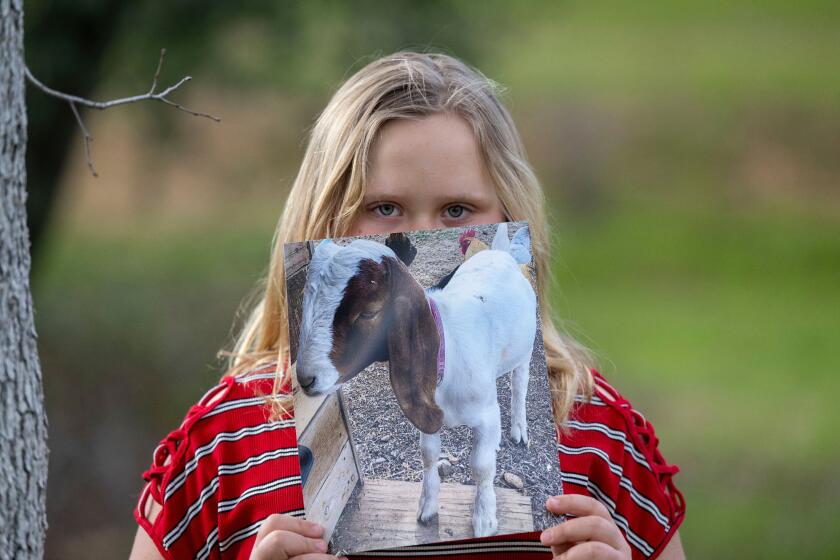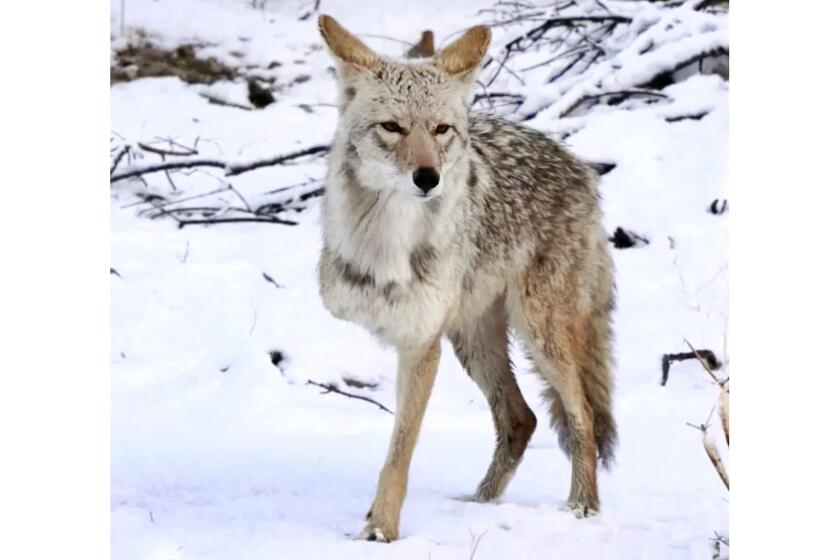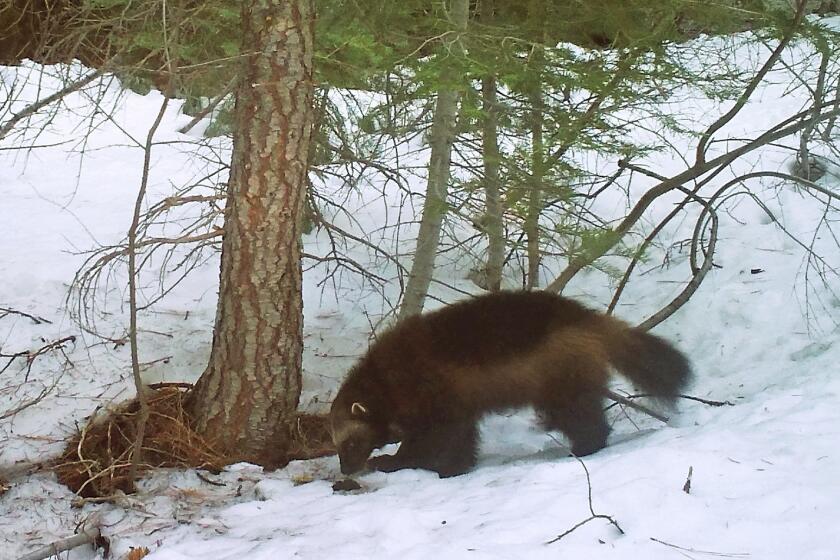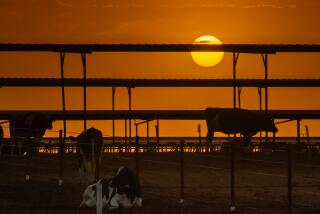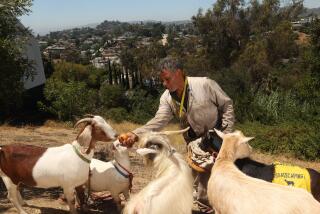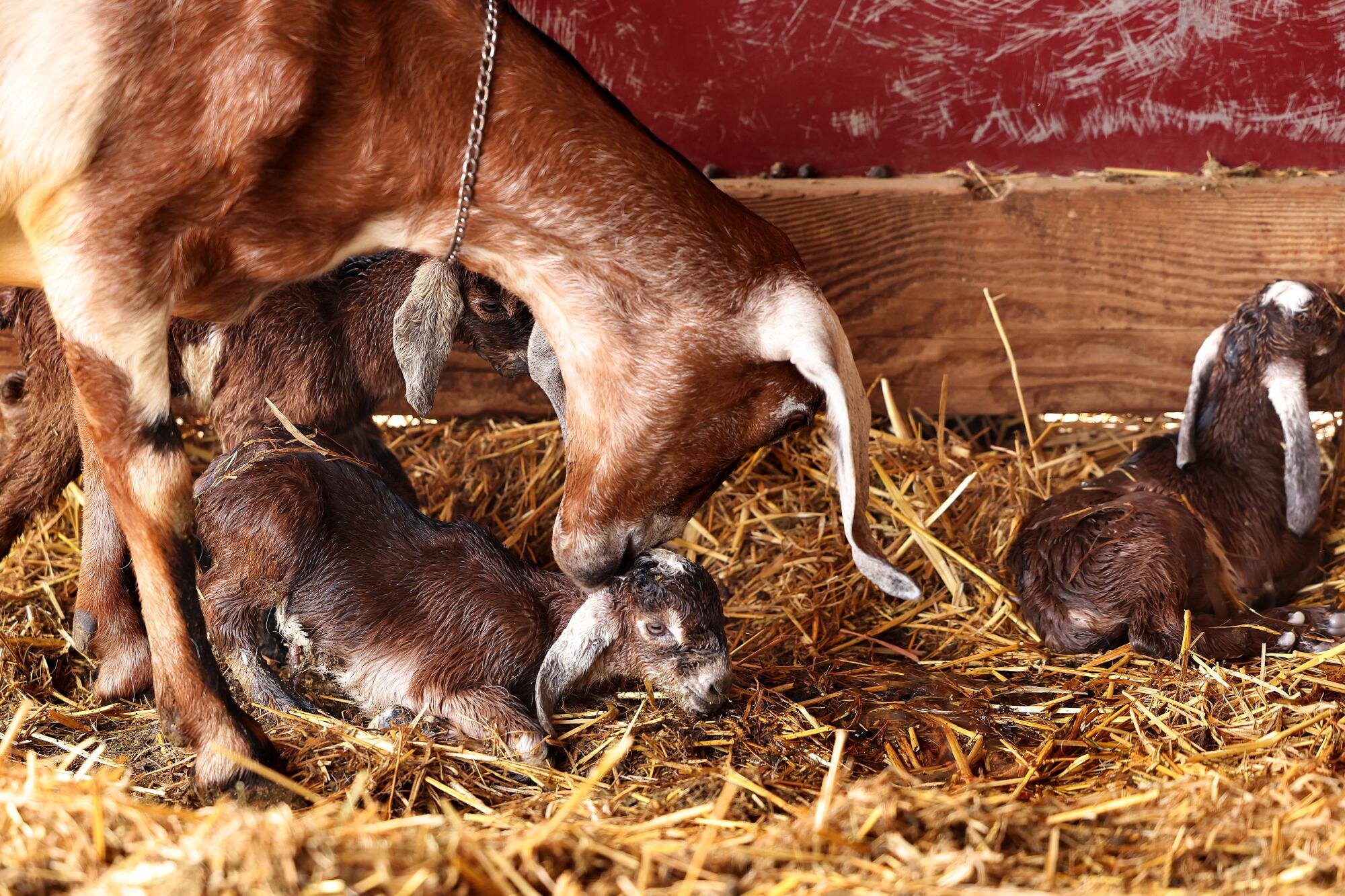
The thieves came in the middle of the night with wire cutters, snipping through the fence and trampling through a brush of stinging nettle. Their target? A pen of goats, some of them pregnant and others that had just given birth.
“They took the tamest, nicest goats that would have come up to them,” said Dan Drake, the owner of Drake Family Farms in Ontario. The burglars had thoroughly cased the joint before pulling off their heist on the night of April 15, when they carted off 12 of his farm’s 500 goats — including his children’s beloved pet, Nova.
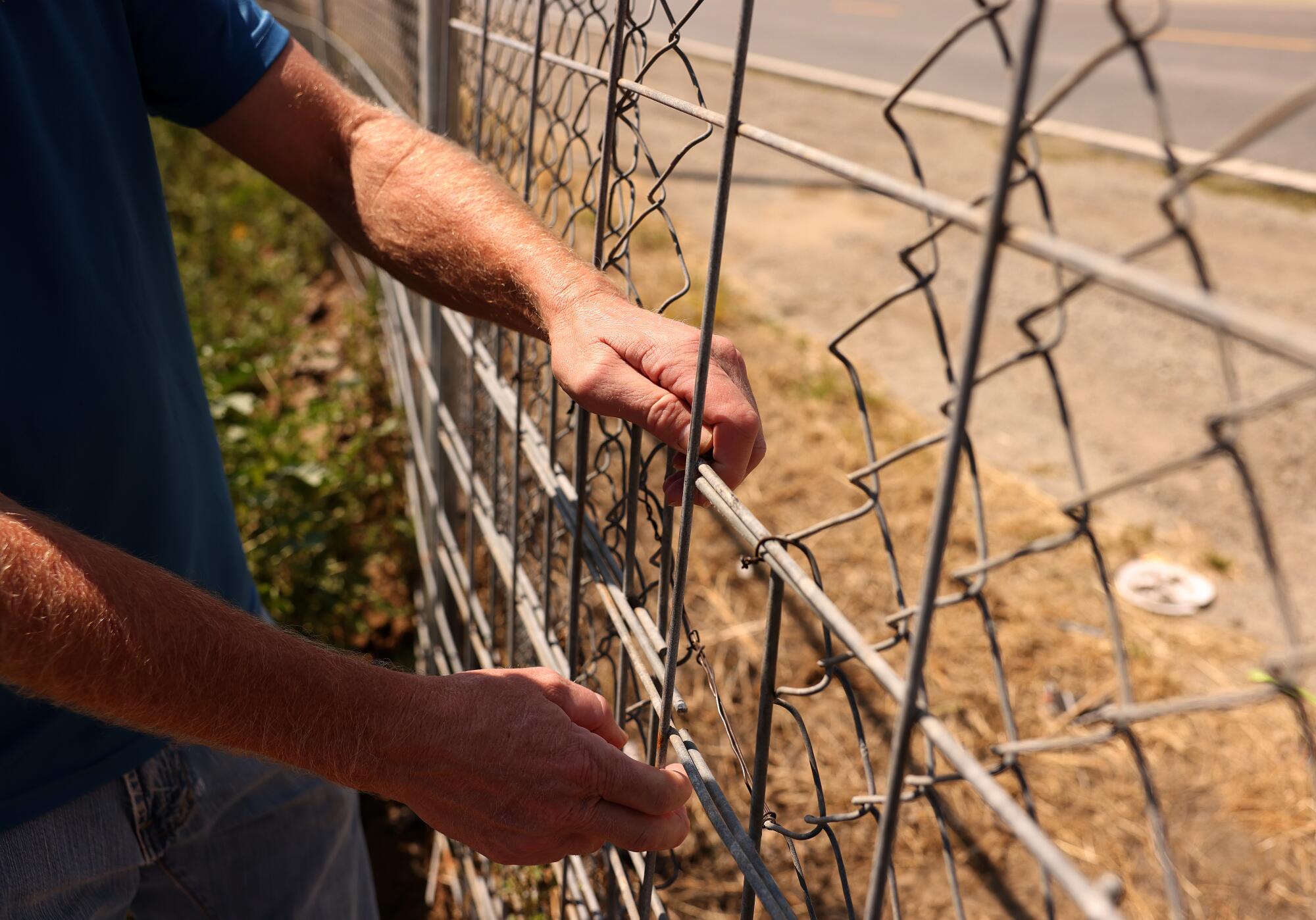
Drake’s goats were easy marks. Goats can’t do much damage with a bite (they don’t have incisors on their upper jaw), and the ones on Drake’s farm had their horns burnt to stop them from growing. Lacking natural weapons of their own, his domesticated goats relied on two Great Pyrenees dogs to defend against hungry predators. But the crafty robbers somehow knew that the dogs couldn’t reach the part of the farmstead where they were breaking in.
“They took one of my favorite goats that I would never sell for even $12,000,” he sobbed over the phone. Drake suspects that one goat who was suffering from pregnancy toxemia is long dead because she didn’t receive the medicine she needed the next morning.
The Drakes filed a report at the Ontario Police Department and are offering a $3,500 reward in the hopes that the goats might still be found. So far, though, the efforts have been unavailing.
Some people have sent pictures of goats wandering in their neighborhood, thinking they’ve found the stolen animals. But they aren’t the Drakes’, said Dan’s wife, Kim, explaining that their animals are well kept and clean. “I know right away they’re not our goats... they’re not shaggy,” she said.
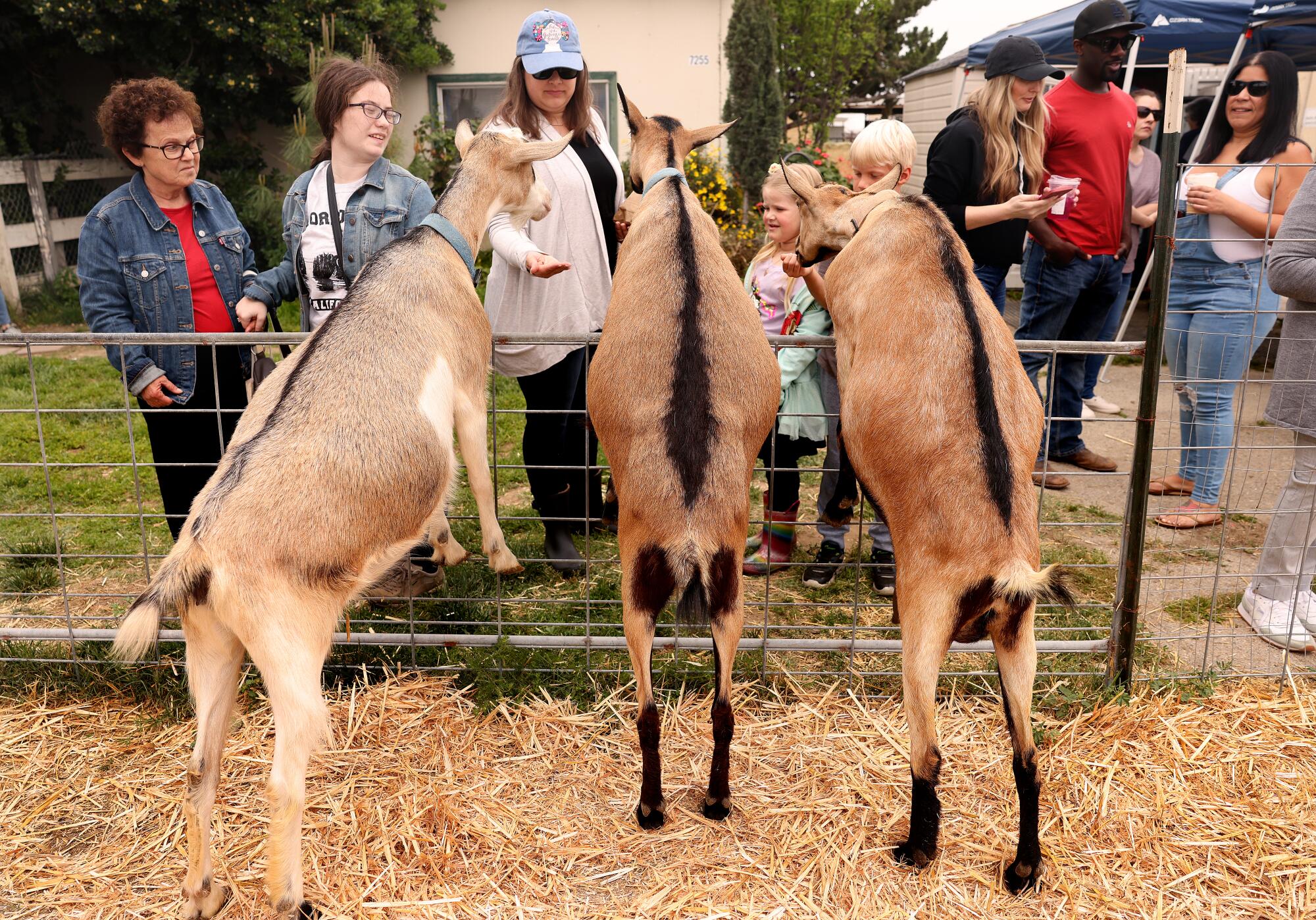
Nor have the goats turned up at any of the local dairies or at a slaughterhouse, said Det. Michael Williams, who’s been investigating this suspected case of grand larceny.
Nearly two years after he was seized, and a year-long battle in federal court, Shasta County fair officials still won’t say what happened to Cedar the goat.
This is just the latest chapter in the long uphill battle Drake has faced since 2010 to keep his dairy farm in the Inland Empire afloat. Drake cares for about 200 dairy cows a day through his livestock veterinarian practice, and over the years he has poured tens of thousands of dollars from his job into making what he claims is the best goat cheese in the country.
“He’ll tell you he’s addicted to [goats],” said Kim, who works as a nurse practitioner when she isn’t caring for their three children. “That’s [Drake’s] calling, I got sucked into it.” Kim Drake estimates that her husband works around 120 hours a week managing two businesses at once.
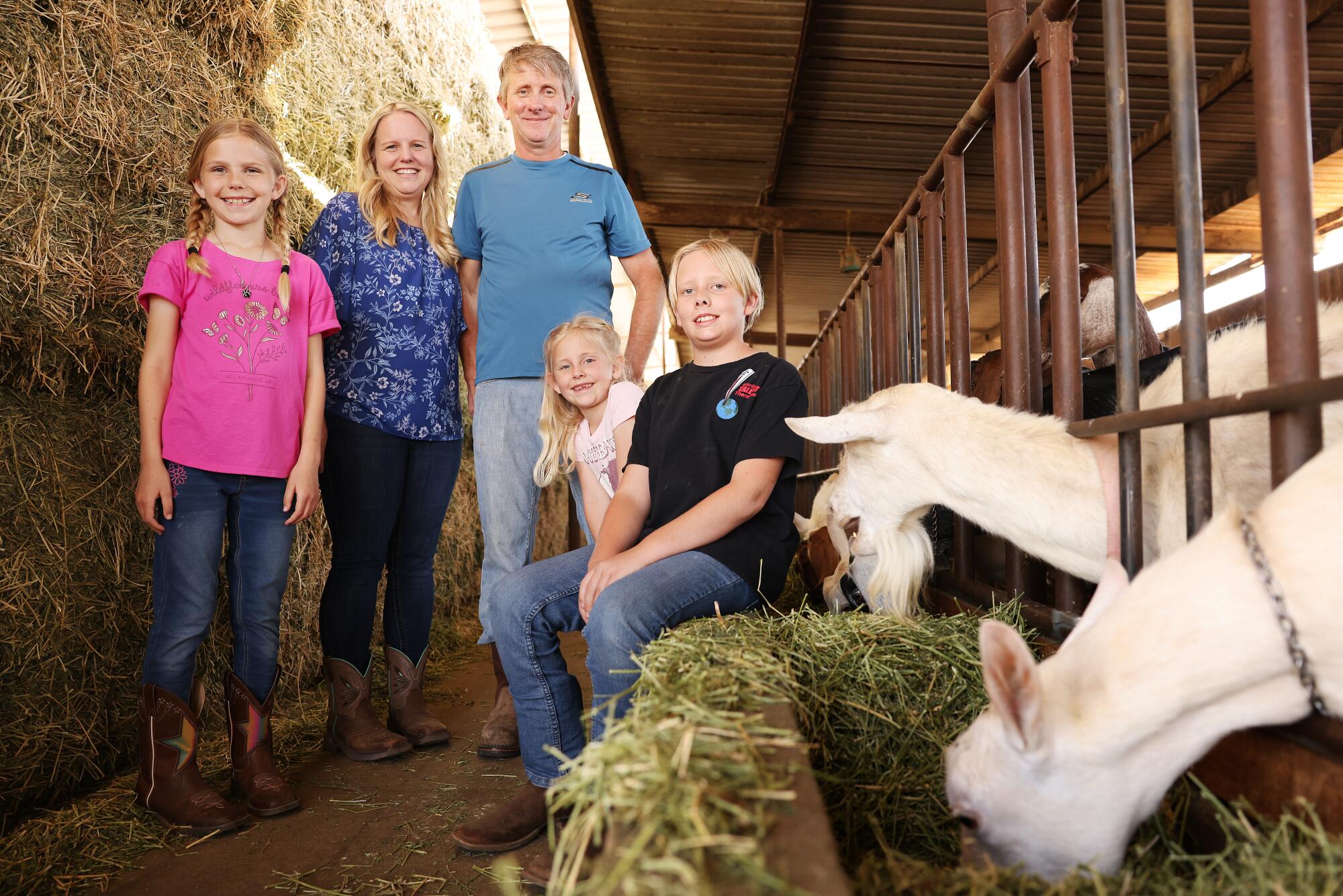
For the record:
1:28 p.m. April 24, 2024An earlier version of this article said members of the Drake family had been goat dairy farmers since the 1880s. They started farming in the 1880s, but Dan Drake began goat farming in 1984.
Dan Drake, whose skin is sun-kissed red by the many hours he’s spent working outdoors, gets dreamy-eyed whenever he talks about his devotion to goats. He is part of a shrinking population of Americans who still call farming a profession. He is the first in his family to raise goats, but his family has been farmers since the 1880s in Salt Lake County, Utah, where their original farm still stands.
He was only 13 years old when he registered his first goat with the American Dairy Goat Assn. — and he was immediately hooked. “Understand I’m like a cat lady, that’s me, but I have goats,” said Drake, who knows almost every single one of his 500 goats by name.
Drake’s business is one of 42 remaining goat farms authorized by the California Department of Food and Agriculture to produce dairy products, and the theft last week has put it into an even more financially precarious state.
Their business was finally in the black after Mendocino Farms partnered with the Drakes to make an entrée called “Save Drake Farms Salad” that paid off all their debts, but the pandemic reversed their fortunes.
“COVID killed us,” Drake said. “Most of our cheeses sold in high-end restaurants, and they were all closed for months.”
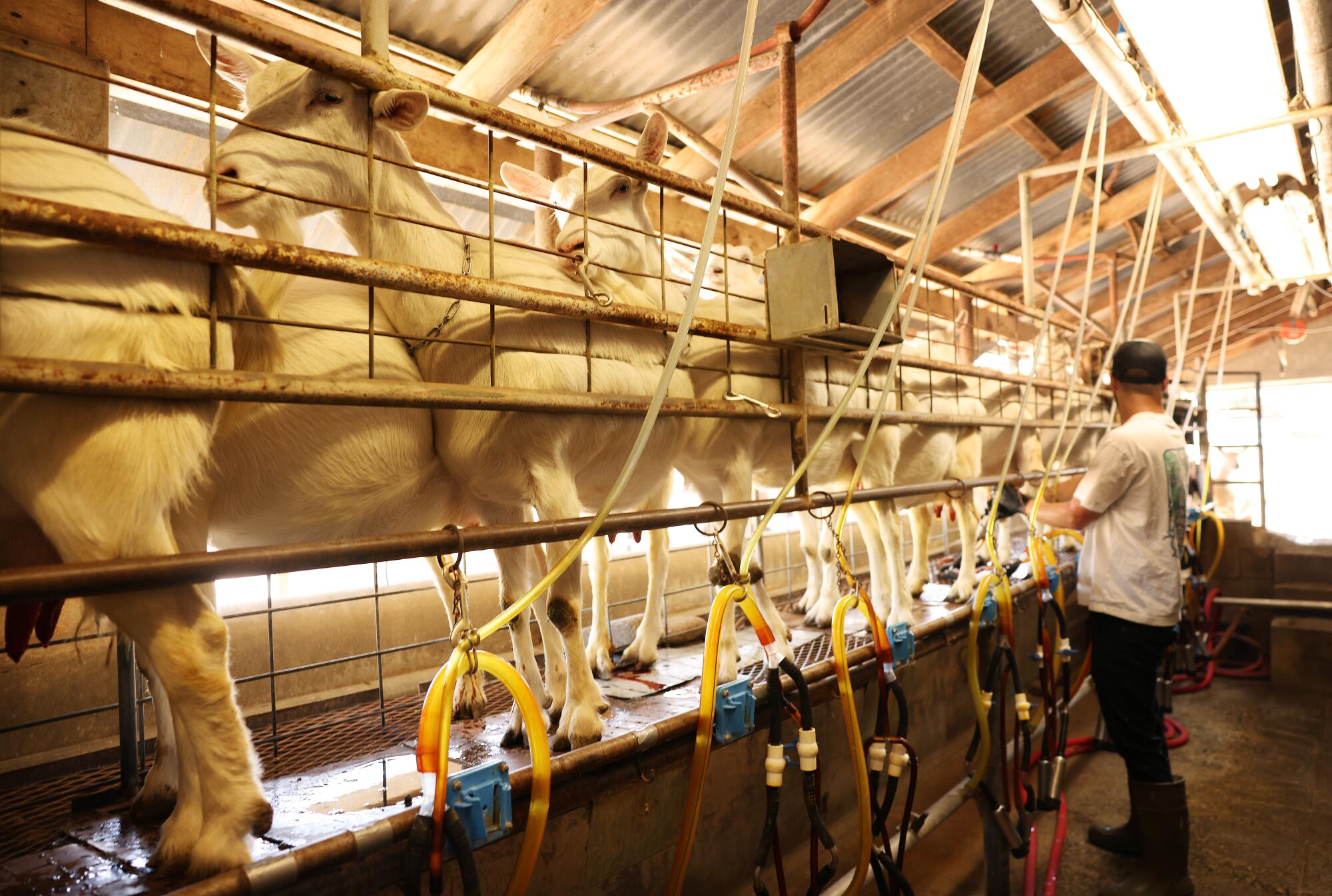
After COVID, Mendocino Farms ended its partnership with the Drakes to save money, he said, and they had to scramble to find a new partner, Sweetgreen. Faced with looming closure, Drake just couldn’t pull the plug on his passion project, even though it takes about $600,000 a year in total to run his farmstead and Sweetgreen makes up only about $400,000 in purchases.
The Drakes try to make up the rest by selling cheese at farmers markets and their farm, where they offer goat petting and tours, which include cheese tastings. Drake also makes money selling genetically superior male goats to other dairy farms. Other male goats are sold as pets or in some cases for families to eat, but he doesn’t butcher any of the animals himself.
Everybody loves Tripod the three-legged coyote, but High Desert locals say that visitors are spoiling the beast with handouts and causing a dangerous situation.
The key to making great cheese is simple for Drake: Keep your goats happy and clean. “There’s some really nasty-tasting goat cheese in the world,” Drake said while giving a tour of the milking station.
Goats, like cows, need to be milked twice a day, but Drake said most places don’t follow the same rigorous cleaning regimen as his business does. “There’s no cleaning...there’s no checking, you just get what you get. And that’s why the cheese tastes horrible,” he said.
He spends around $16,000 a month on 50 tons of high-quality alfalfa hay for his livestock. “When we take a lot of extra time and we double our expense and labor ... then that comes back to us in a quality product,” said Drake, who noted that his farm has Certified Humane status. Considering how much labor he puts into the farm, sometimes it isn’t clear whether Drake’s working for the goats or if they’re working for him.
But the recent setbacks haven’t deterred him from dreaming. “I want to have a regenerative farm that actually enhances the environment, doesn’t take away from it,” he said.
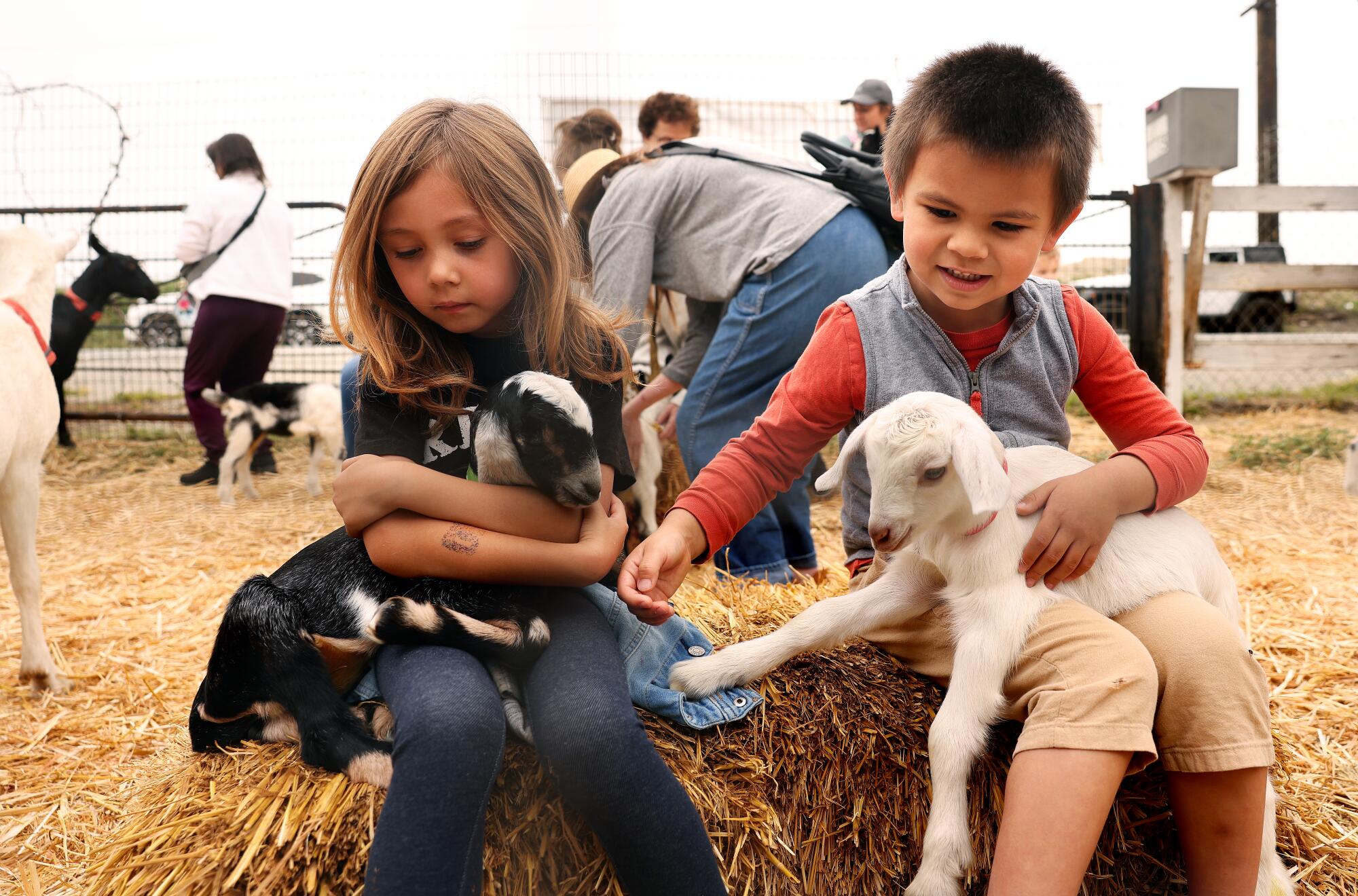
He’ll be moving soon to a much larger plot of land in Riverside County, where he hopes to cut costs by installing a battery or solar panel that could help combat Edison’s summertime surge pricing for electricity. And he’s realizing he can tap into the agriculture tourism industry dollars by offering more educational tours of the farm.
Drake said he’s faced many tough times in the business when the rational thing to do would have been to shut it down. But he’s never had the heart to pull the plug.
He and his wife also see the farm as a form of public service. According to Kim Drake, people who visit the farm leave feeling more deeply connected with nature as the source of their food.
Proposed legislation seeks to reintroduce wolverines to California, which lacks a permanent population of the protected animals.
In Drake’s petting zoo, families and children are all over the goats, which wander person to person searching for snacks and attention. Jennifer Sleeper, a trauma therapist, just happened to be cuddling a newborn goat whose mother was one of the dozen taken.
“[This] is the happiest I’ve ever been in a long time,” said Sleeper as the orphaned kid lounged peacefully in her lap and another sucked her finger, hungry for milk.
Sleeper is a pescatarian, but the Drake Family Farm’s cheese is one she will eat because she sees the ethical sourcing that goes into it. “I think it’s really good to support places like this,” said the Venice resident of the farm that is one of only two goat dairy operations in Southern California, the other being in San Luis Obispo County. She hopes to volunteer even if the farmstead moves farther out in Riverside County.
“The cheese,” she added, “is just delicious.”
More to Read
Sign up for Essential California
The most important California stories and recommendations in your inbox every morning.
You may occasionally receive promotional content from the Los Angeles Times.
